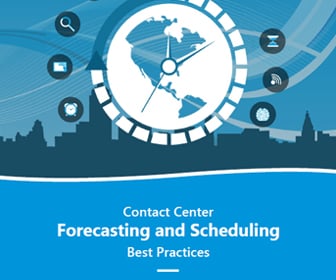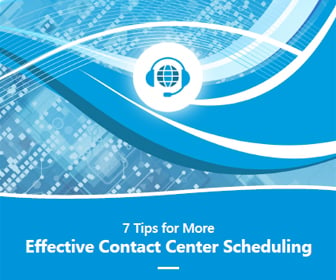Workforce Management Featured Article
US Call Center Workers in Crowded Buildings Terrified of COVID-19 Spread

For some employees in a busy Oregon call center, going into work may now mean a matter of life or death. The COVID-19 pandemic has created some interesting and inconsistent rules around who is considered an "essential" employee during a time of crisis. And now some call center workers in the financial sector are speaking up about the risks they face daily.
A March 23 stay home order for Oregon indicates that the financial sector and its employees are considered essential and are not required to work from home. According to a report in the Hillsboro News-Times, employees at three Wells Fargo (News - Alert) call centers in the state have not been allowed by their employer to work remotely. Agents at the Hillsboro call center have complained they are still working in "close" quarters, with hundreds of people on the same floor of the building.
"One of our co-workers believes their spouse has the COVID-19 virus, and they have gone to HR and management and were told they need to keep coming into work until there's a positive diagnosis," wrote one employee in a correspondence to the banking company. "We aren't practicing social distancing here in our building."
According to another employee, the company is allowing some but not all of its call center agents to work from home. Those who complain to HR are allegedly told to either use up their accrued sick leave or move their desk farther away from co-workers.
The situation has escalated to the point where the call centers are under investigation by the state for possible unsafe working conditions during the coronavirus outbreak. In fact, the Oregon Occupational Safety and Health Administration has been overwhelmed by complaints from employees who allege their employers are breaking state orders.
A majority of the complaints are from "essential" employees, who allege little or no accommodations have been made to keep them safe from exposure to COVID-19 at their job sites or while performing off-site work like deliveries.
The problem is becoming systemic among call centers and other industries. In Broward County, FL, for instance, county call center employees recently expressed concerns about not being allowed to telecommute while working in densely populated offices. Private call center workers in the region have also expressed complaints during the coronavirus pandemic.
Last week, In These Times spoke to call center workers throughout the country who alleged they were being forced to work in close proximity to other agents with no concessions for remote work. One agent at a Consumer Cellular call center in Arizona told the publication he had left his job over fear of contracting the virus.
"I am of the opinion that states like mine that are oversaturated with mega call centers are putting an untold number of lives at risk by allowing them to continue to operate," he said.
"We need to be allowed to work from home to prevent people from catching the virus, as a precautionary measure -- not as a reactionary one," Patrick Creaven, a Wells Fargo worker, told the publication. "I'm very worried. Government agencies have told us to 'shelter-in-place' to prevent the spread of the virus. Going into a building with hundreds of people in it, opening the same doors and touching the same elevator buttons, has suddenly become terrifying. I feel like it's not a matter of if, but when someone becomes sick."
Edited by Maurice Nagle







